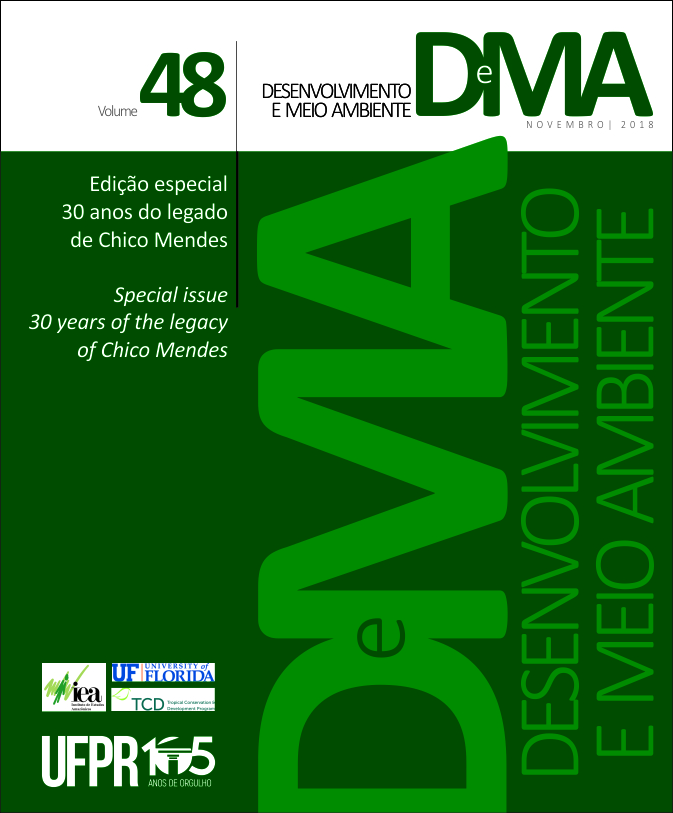Social participation in the Arraial do Cabo Marine Extractive Reserve: an analysis of management tools from a perspective of decoloniality
DOI:
https://doi.org/10.5380/dma.v48i0.58831Keywords:
Resex Marinha de Arraial do Cabo, social participation, decoloniality, management toolsAbstract
The present proposal seeks an analysis of the dynamics of social participation in Conservation Units of Sustainable Use. In order to do so, it explores the response of the social movement of the rubber-tree to the threats of Developmentalism between the 1970s and 1980s, to the appropriation of this legacy by agents such as the tate and the market. A critical study is suggested in the light of the theoretical efforts that cover decolonial thinking, intersecting a perspective that understands social processes from the resistance of social movements on the one hand, and from the appropriation of their proposals on the other.. In this way, what was built as a struggle for recognition of a specific form of relationship with the territory, a development model based on the organization of a local economy, directly associated with a specific way of doing, living and creating "from the South has become a public policy, a marine protected area, with institutional spaces that imprison the possibility of the emancipatory proposal contained in the statements of the rubbertapper movement. The Arraial do Cabo Marine Extractive Reserve, created in 1997, provides an overview of the implementation of this public policy in a marine territory, where social, cultural, economic and political processes are updated. The focus on the so-called management instruments, such as the Deliberative Council, the Concession of the Real Right of Use, the Plan of Use, the Management Agreement, will constitute a theoretical-practical dialogue that stems from the communication of the resistance of fishermen to initiatives of guardianship by the state and other agents, bringing to light the perception of these subjects in the current arenas of decision instituted by legal force.
Downloads
Published
How to Cite
Issue
Section
License
Copyright on works published in this journal rests with the author, with first publication rights for the journal. The content of published works is the sole responsibility of the authors. DMA is an open access journal and has adopted the Creative Commons Attribution 4.0 Not Adapted (CC-BY) license since January 2023. Therefore, when published by this journal, articles are free to share (copy and redistribute the material in any medium or format for any purpose, even commercial) and adapt (remix, transform, and create from the material for any purpose, even commercial). You must give appropriate credit, provide a link to the license and indicate if changes have been made.
The contents published by DMA from v. 53, 2020 to v. 60, 2022 are protected by the Creative Commons Attribution-NonCommercial-NoDerivatives 4.0 International license.
DMA has been an open access journal since its creation, however, from v.1 of 2000 to v. 52 of 2019, the journal did not adopt a Creative Commons license and therefore the type of license is not indicated on the first page of the articles.




